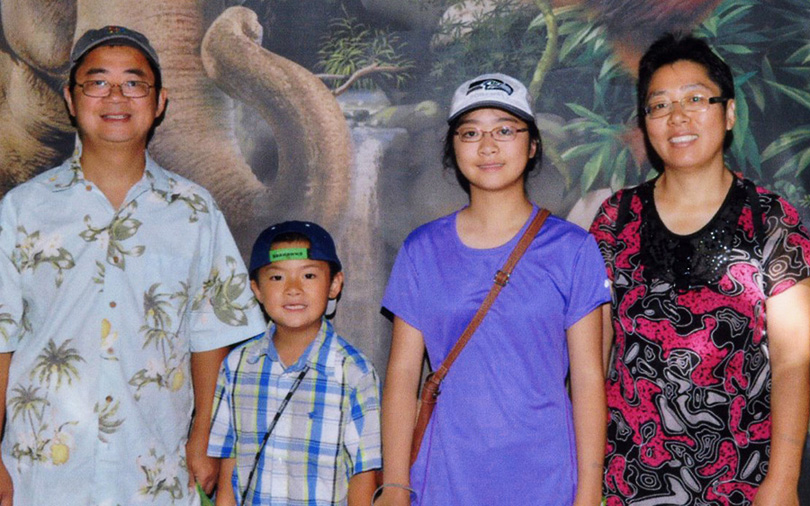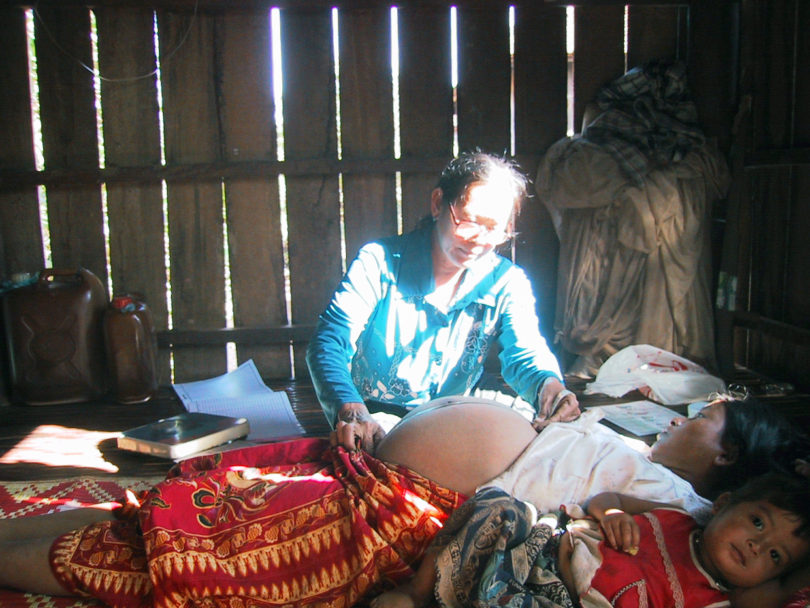Polio, pride, and love: the story of an exceptional mother and her son
Apr. 27, 2017
This story was originally shared on the PATH blog: Stories of Innovation and Impact.
Stricken by polio as a child, PATH's Changcheng Zhu shares how his mother inspired his passion for advancing global health solutions.
Changcheng Zhu admits he has no recollection of what could have easily been the worst day of his life. Like many childhood memories, the telling and retelling takes on a life of its own. And yet there’s the proof: a slight limp lingers from his bout with polio—when the trajectory of his life changed forever.
One day, three-year-old Changcheng lost his ability to walk. And in rural China during the early 1960s, with fields and open spaces for children to explore, that behavior was odd.
“I do remember the hospitals and the doctors,” says Changcheng. “My mother took me everywhere, carrying me when she had to. First to the small local clinic in the county, and then by bus to the larger city hospital.” Changcheng smiles sheepishly. “My mother was determined to find a ‘cure’ for her little boy.”
They would soon learn that Changcheng’s symptoms were caused by poliovirus. But this involved some sleuthing on his mother’s part. The village doctors were not sure what had happened to him because polio can affect each person differently, and symptoms manifest in unique ways.
“Fortunately, because my symptoms were identified early, I am able to walk now,” says Changcheng.
After he was diagnosed, Changcheng’s mother learned that four other children who lived nearby were affected by varying degrees of paralysis. Only then, at her urging, did health officials work to curb the rising epidemic. However, their approach did not involve vaccination—the polio vaccine was not yet available in China. And no one knew it had been recently developed.
“Today my own kids ask me why I got polio. I tell them I do not know. But, I do know I have good luck. I have a limp, but at least I can walk.” He pauses and adds, “It was bad luck for the little girl who could never walk again.”

Changcheng today, pictured with his family. Photo: courtesy of Changcheng Zhu.
Changcheng thinks that without his mother’s support and determination, the disability could have affected his spirit growing up—but she wouldn’t let it.
“My mother knew I should go on to university, but I did not pass the physical exams. At that time in China, it was very hard to get into university even when you passed the right tests.” Which, by the way, he did. He continues, “There was a misconception that my disability would affect my college and career.”
Changcheng’s mother faced down the prejudice, never wavering from her belief that he should be afforded the same opportunities as his able-bodied peers. She vigorously campaigned on his behalf, writing numerous letters, and she eventually convinced a university to accept her son.
Today, at 84, Changcheng’s mother still lives in China. But much like her son, an adverse health event could have changed the trajectory of her life. It’s a memory from Changcheng’s childhood that he vividly recalls.
“I nearly lost my mother to an ectopic pregnancy that led to sepsis.”
When Changcheng was a boy, his mother complained of abdominal pain and visited the local doctor. The doctor identified internal hemorrhaging as the cause of her pain, a diagnosis that was made by extracting blood from her distended belly with a conventional needle and syringe.
She needed surgery, but neither the village clinic nor the nearby city’s small hospital were outfitted to perform it. They also had no telephone to call an ambulance.
To get her to the nearest provincial hospital, over 25 miles away, Changcheng’s father and other relatives were determined to carry her on a small bed—hoisted on their shoulders. Fortunately, after they courageously endured a few miles on foot, a passing truck stopped and offered to take Changcheng’s mother the rest of the way.
During the trip, her condition worsened. Sepsis, a potentially fatal blood infection, quickly set in and she passed out. It was then that Changcheng wondered why there weren’t medicines that could prevent or treat the internal hemorrhaging his mother experienced.
“I remember how anxious and scared she was. I thought, there should be a drug that could stop the bleeding, that would be fast-acting and convenient.” He continues, “My mother had asthma, and if a drug could work like her asthma medicine, a sublingual tablet placed under her tongue to help her breathe, then why couldn’t we develop other drugs that could save lives?”
During surgery, the ectopic pregnancy was confirmed. Afterwards, Changcheng’s mother spent 15 days unconscious and then one month hospitalized as she recovered. Watching his mother suffer such a life-threatening experience stayed with Changcheng—fueling his drive to make things better for people.

To curb maternal mortality in nonclinincal settings around the world, there is a need for lifesaving drugs that are safe, effective, accessible, and affordable. Photo: PATH/Jan Jacobs.
Today, among a range of work he conducts in the laboratory at PATH, Changcheng is helping develop and advance novel vaccine and drug formulations as fast-dissolving tablets to treat and prevent, for example, diarrheal disease and postpartum hemorrhage. His work could specifically help improve product safety, access, and use in the nonclinical settings common to developing countries.
Changcheng says what motivates him to work in global health is making sure mothers in low-resource and remote areas of the world no longer fear diseases like polio or diarrhea, or suffer life-threatening complications during pregnancy.
“Mothers and their children need help. I want to help people.” Changcheng says.
Read more stories from PATH here.
